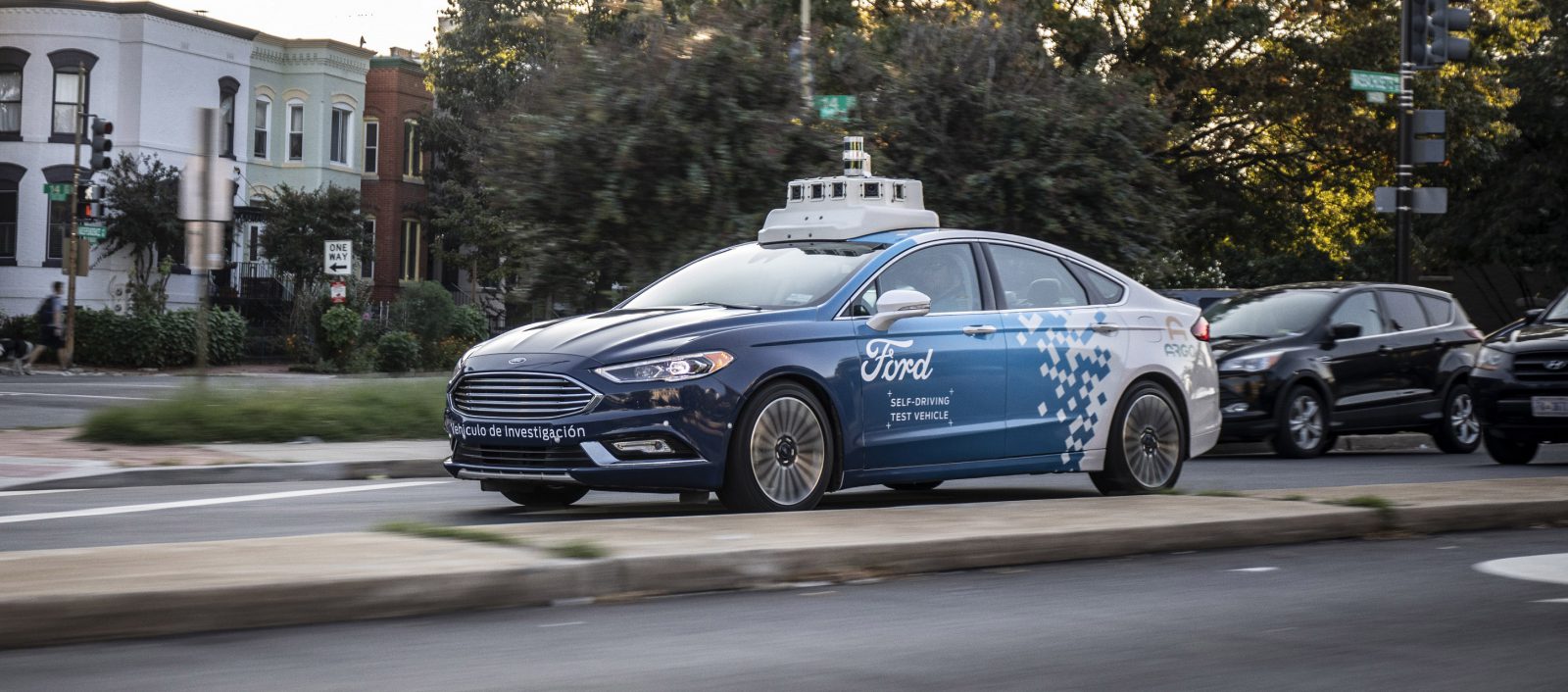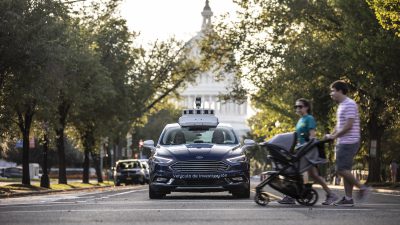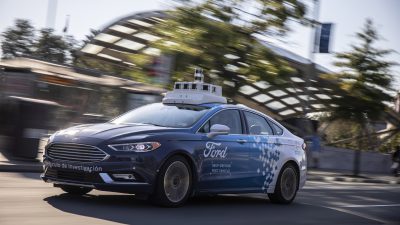- Ford investeert $900 miljoen in fabriek in Michigan en streeft naar geleidelijk 900 nieuwe banen in 2023
- Investering maakt deel uit van Fords plan om productiecapaciteit in Flat Rock (Mich.) uit te breiden – inclusief productie van volledig elektrische voertuigen – met een geschatte investering tegen 2023 van meer dan $850 miljoen
- Eerste autonome voertuigen zullen vanaf 2021 in Michigan geproduceerd worden; Ford investeert ook in ‘Autonomous Vehicle center’ waar unieke zelfrijdende technologieën en interieurs zullen worden geïnstalleerd
Ford heeft bekend gemaakt dat het de productiecapaciteit voor de nieuwe generatie geëlektrificeerde voertuigen zal uitbreiden naar een tweede fabriek in Noord-Amerika.
Lees hieronder het volledige Engelstalige persbericht. Lees verder
Downloads
Tied to the company’s $11.1 billion investment in global electric vehicles, Ford is expanding its BEV manufacturing footprint to its Flat Rock Assembly plant in southeast Michigan. The plant will become the production home to vehicles from the company’s next-generation battery electric flexible architecture. These vehicles will follow the all-electric performance SUV coming in 2020 from Ford’s Cuautitlan, Mexico, plant.
“We’ve taken a fresh look at the growth rates of electrified vehicles and know we need to protect additional production capacity given our accelerated plans for fully electric vehicles,” said Joe Hinrichs, Ford’s president, Global Operations. “This is good news for the future of southeast Michigan, delivering more good-paying manufacturing jobs.”
Through this new plan, Ford is targeting to invest more than $850 million in the Flat Rock Assembly Plant through 2023, adding a second shift. The plant investment also includes funding to build the next-generation Mustang and is part of a $900 million investment in Ford’s operations in southeastern Michigan.
The company also announced it will complete Ford’s first autonomous vehicles at a new AV manufacturing center in southeast Michigan, upfitting purpose-built, commercial-grade hybrid vehicles with self-driving technology and unique interiors. Production of Ford’s first autonomous vehicles will begin in 2021 for deployment in commercial services to move people and goods.
“As we ramp up AV production, this plan allows us to adjust our investment spending to accommodate the pace of growth of this exciting new technology,” Hinrichs said. “This new plan combines our core strength in mass manufacturing with the agility and leanness we’ve shown with our modification centers for specialty manufacturing.”
Ford also announced today it is building its next-generation North American Transit Connect small commercial and passenger van in Mexico, starting in 2021.
Producing this small van in Ford’s Hermosillo, Mexico, assembly plant increases U.S. and Canadian vehicle content consistent with the proposed USMCA trade agreement, which supports U.S. manufacturing jobs and boosts sourcing of components with North American suppliers. It also helps the company improve the profitability of its North American Transit Connect lineup, which is part of Ford’s industry-leading lineup of commercial vehicles and vans.
All of the moves are part of the company’s commitment to continuously find ways to boost its global competitiveness. This builds on Ford’s recent announcements to exit the heavy truck business in Brazil, restructure its operations in Europe and improve results in China.
“We continue driving to find new and better ways to boost our fitness as a company and one of the world’s leading manufacturers,” Hinrichs said. “Working together with our employees, union partners and government officials around the world, we are continuing to unlock new solutions to deliver world-class vehicles people want and value even more efficiently.”





